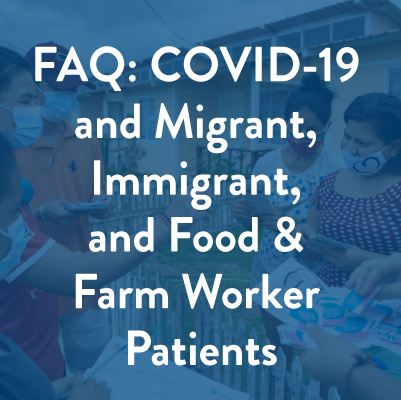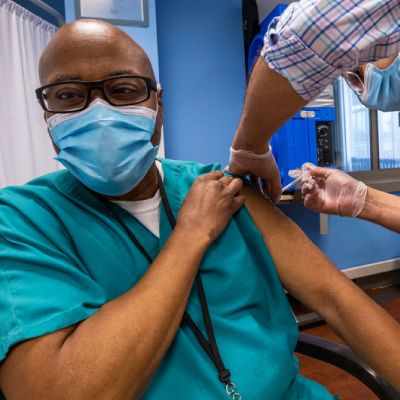- Who We Are
- Clinician Employment
- Publications
- Witness to Witness (W2W)
- Kugel & Zuroweste Health Justice Award
- Your Voice Matters: Photovoice Project
Fri, 09/25/2020 | by Claire Hutkins Seda

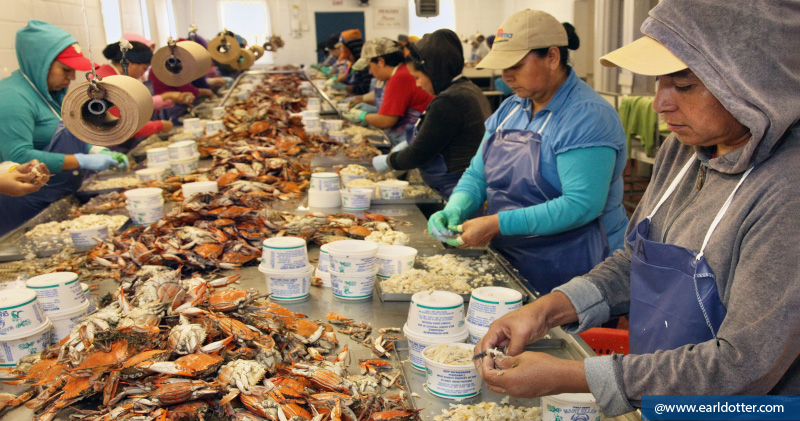
“Every year, hundreds of migrant women make the arduous journey from their homes in Mexico to Maryland’s Eastern Shore to support our treasured crab industry – but in doing so, they put their health at risk,” said Migrant Clinicians Network’s Amy K. Liebman, MPA. She was speaking at a press conference on the release of the Centro de los Derechos del Migrante, Inc.’s new report, “Breaking the Shell: How Maryland’s Migrant Crab Pickers Continue to Be ‘Picked Apart.’”
The report covers the poor working and living conditions of the migrant crab picker women who travel to Maryland each year on H2B visas, and the gender-based abuse they endure, even as they are deemed “essential” under the COVID-19 pandemic.
Liebman described the employer-provided housing as overcrowded, and noted that the women pay to be able to stay there. “As we navigate the COVID-19 pandemic, these problematic housing conditions are even more serious as physical distancing is critical in preventing this potentially deadly disease, one that we know disproportionately impacts the Latinx community,” she added.
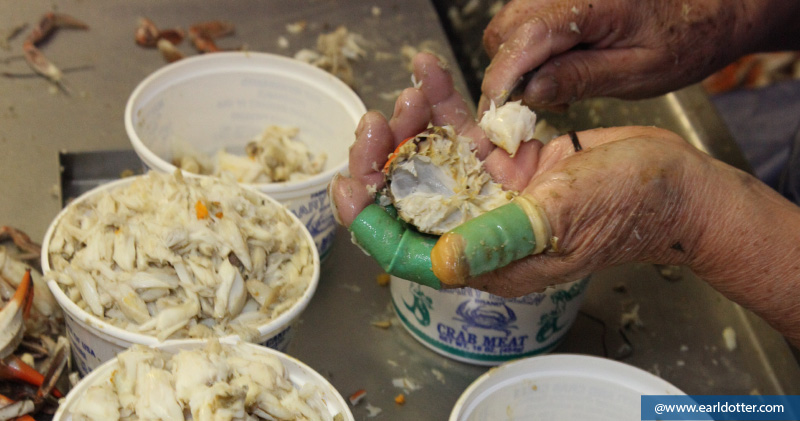
Health disparities are rampant on the job. “Crab pickers are expected to work quickly, using sharp knives to pry open jagged crab shells and extract the crabmeat. In addition to the cuts and resulting infections from these lacerations, these women report symptoms related to asthma and allergies that are common in the seafood industry, which is known for occupationally related chronic and acute respiratory conditions,” Liebman said. She also spoke about “crab asthma,” a common occupationally related asthma resulting from exposure to processes such as cooking, steaming, washing, sawing, scrubbing or scraping crab.
When workers do fall ill, health care gaps continue to be significant. While a federally qualified health center does bring some care to the workers, they remain a 45-minute drive to the nearest clinic – and these workers do not have their own vehicles. While H2B workers are eligible for health insurance, many employers decline to provide it as the workers are short-term.
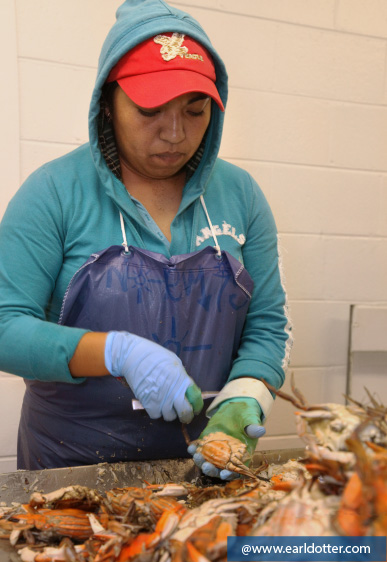 Many of the women leave behind their families, affecting the parent-child relationships and their emotional health. Others, who are pregnant, face discrimination in recruitment and hiring as well as safety concerns while in Maryland. “The need to earn an income to help their families survive compels them to continue working in Maryland each year,” Liebman said.
Many of the women leave behind their families, affecting the parent-child relationships and their emotional health. Others, who are pregnant, face discrimination in recruitment and hiring as well as safety concerns while in Maryland. “The need to earn an income to help their families survive compels them to continue working in Maryland each year,” Liebman said.
The report concludes that “despite the availability of proven ways to prevent injuries and mitigate harm to workers’ health, such as abandoning quota systems, providing protective gear, and venting crab vapors away from workers, some employers lag behind in implementing these solutions.”
“COVID-19 has ripped the thin veil that had previously and conveniently shielded people in the United States from the working conditions so many of these essential crab pickers endure each day,” Liebman concluded. “Suddenly, we see how essential they are to the functioning of our economy, and yet how vulnerable they are to illness. It’s time for a change.”
Read the report on the website of the Centro de Los Derechos Del Migrante, Inc.: https://cdmigrante.org/breaking-the-shell/
Like what you see? Amplify our collective voice with a contribution.
Got some good news to share? Contact us on our social media pages above.
Return to the main blog page or sign up for blog updates here.




